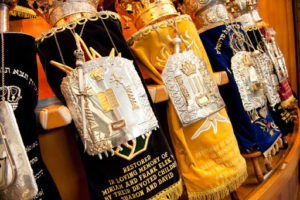Pinner Eruv
Pinner Eruv
To see the current status of the Pinner Eruv and an interactive map, please click here

What is an Eruv?
The literal meaning of the word eruv is blending or intermingling, but that really does not tell us much. The concept of an eruv goes back to the principle of Shabbat rest. Under Jewish law on Shabbat, it is forbidden to carry anything—regardless of its weight, size or purpose—from a “private” domain into a “public” one or vice versa, or more than four cubits (approximately 6 feet) within a public domain. Private and public do not refer to ownership, rather to the nature of the area. An enclosed area is considered a private domain, whereas an open area is considered public for the purposes of these laws.
Practically, it is forbidden to carry something, such as a tallit bag or a prayer book from one’s home along the street and to a synagogue or to push a baby carriage from home to a synagogue, or to another home, on Shabbat.
It became obvious even in ancient times, that on Shabbat, as on other days, there are certain things people wish to carry. People also want to get together with their friends after synagogue and take things with them—including their babies. They want to get together to learn, to socialize and to be a community.
Given the design of many communities in the past, many neighbourhoods or even cities were walled. As such, the whole area was regarded as “private,” and carrying allowed. That, however, wasn’t always the case. And today, it is an obvious impracticality to build walls throughout portions of cities, crossing over or through streets and walkways, in order to place one’s home and synagogue within the same “private” domain.
Why have an Eruv?
A technical enclosure which surrounds both private and hitherto public domains creates a large private domain in which carrying is permitted on Shabbat. Colloquially this is known as an eruv. The eruv is usually large enough to include entire neighbourhoods with homes, apartments and synagogues, making it possible to carry on Shabbat, since one is never leaving one’s domain.
This episode is part of the following series:
